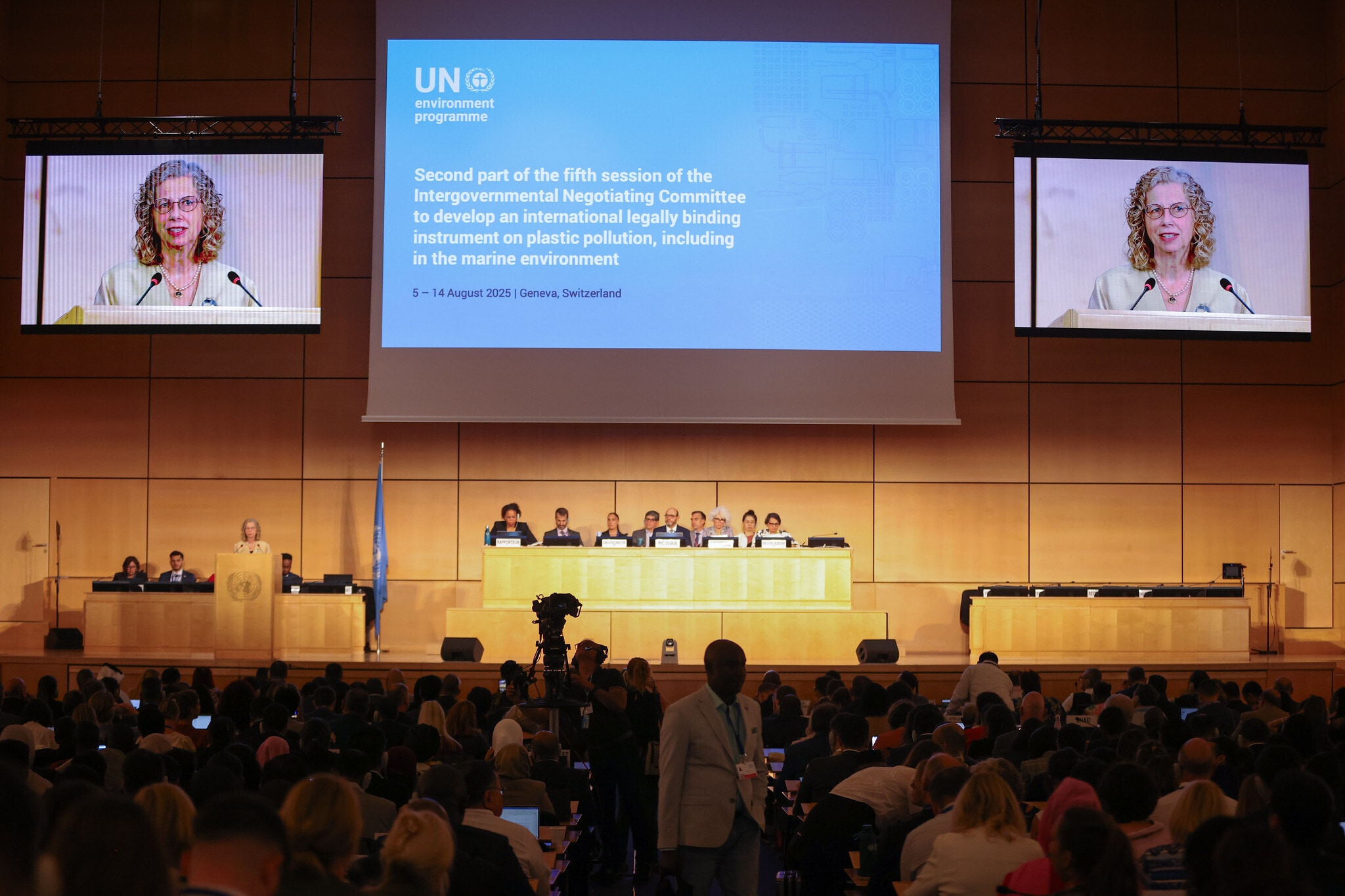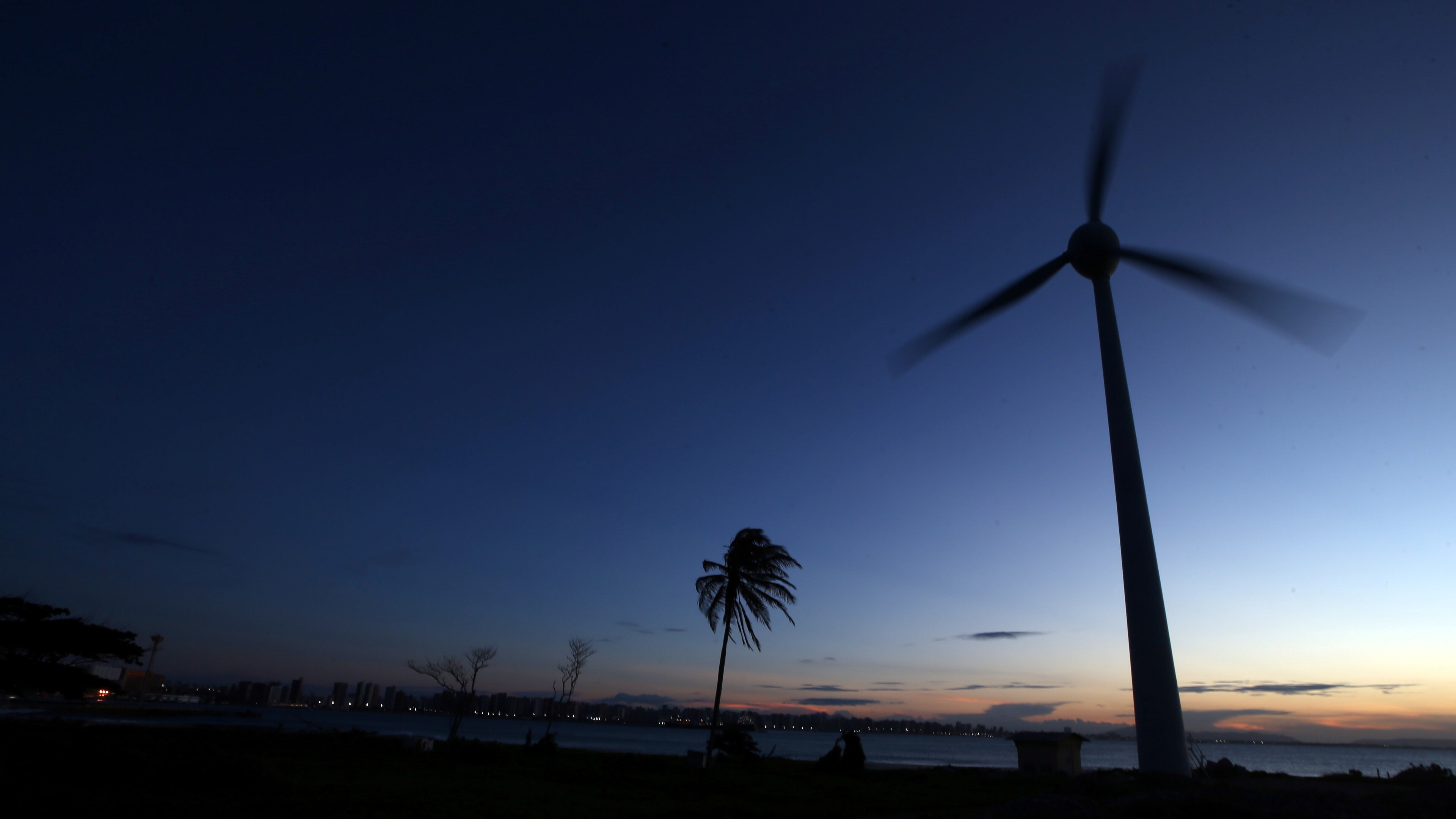The UN calls for massive financial support for Pakistan - and other climate change stories you need to read this week

This round-up brings you key climate change stories from the past week.
Image: Unsplash/karsten_wuerth
Stay up to date:
Climate Crisis
Listen to the article
- This weekly round-up brings you key stories on climate change and the environment.
- Top stories: The UN calls for massive financial support for Pakistan; Brazil backs the fight against climate change; The UK records its warmest year since records began.
1. News in brief
UN Secretary-General Antonio Guterres is calling for international support to help Pakistan with a $16 billion rebuilding effort following devastating floods. Pakistan and the UN are holding a major conference in Geneva aimed at marshalling support in what is expected to be a major test case for who pays for climate disasters.
According to a new study, up to half of the world’s glaciers could disappear by the end of the century even if the most ambitious climate targets are met, CNN reports. Satellite data models show that substantially more ice will be lost contributing to greater sea-level rise than current scientific estimates suggest.
The World Bank is seeking to significantly expand its lending capacity to address climate change and other global crises, according to a draft document seen by Reuters. The roadmap document – sent to shareholder governments – marks the start of a negotiation process to alter the bank's mission and financial resources and shift it away from a country- and project-specific lending model.
Germany's carbon dioxide emissions held steady last year, jeopardizing its climate targets, as higher use of oil and coal offset lower energy consumption and record renewables output. Berlin aims to become carbon-neutral by 2045, but short-term measures to ensure energy security have left it behind schedule according to data from a climate think tank.
The US Environmental Protection Agency says it will tighten national air quality standards for fine particle pollution for the first time since 2012. The move could lead to tougher limits on pollution emitted from vehicles and industrial sources.
Brazil will not shy away from playing a leading role in addressing climate change and the impending emergency the world is facing, according to its newly appointed Environment Minister, Marina Silva. On 4 January, she announced the creation of an extraordinary secretary to end deforestation and plans to set up a climate authority within the administration of President Lula da Silva.
Record-high winter temperatures swept across parts of Europe over the new year, bringing calls from activists for faster action against climate change. Hundreds of places saw temperature records broken, from Switzerland to Hungary, which registered its warmest Christmas Eve in Budapest.
The first vaccine for honeybees has been approved by the US government, which will hopefully protect colonies from American foulbrood other diseases, The Guardian reports. Many bee species are in significant decline, partly as a result of the climate crisis.
Have you read?
2. Climate change contributes to UK’s warmest year on record
The UK experienced its hottest year on record in 2022, according to the national weather service. The Met Office says human-induced climate change has made what would normally be a once-in-500-year event likely to happen every three or four years.
The UK’s average annual temperature was 10.03 degrees Celsius last year, breaking 10°C for the first time, and the highest since records began in 1884. The 2022 average was 0.89°C above the 1991 to 2020 average, and 0.15°C above the previous hottest year, set in 2014. The Met Office says all the 10 warmest years have occurred after 2003.

The Met Office findings confirmed provisional results published in late December. In July, Britain recorded its hottest day to date with temperatures exceeding 40°C. A drought was declared in parts of England for the first time since 2018.
"Even with the influence of climate change, we don't expect every year to be the hottest on record from now on," said Mark McCarthy, Head of the Met Office National Climate Information Centre.
"Natural variability of the UK climate means there will always be some variation year to year, however looking at longer term trends it is easy to pick out the influence climate change is having over time."
3. Germany backs plan to capture carbon from cement
Germany's Economy Minister has thrown his support behind a Norwegian project to capture carbon emissions and re-use them. Robert Habeck's visit to the Norcem cement plant in Brevik represents a shift in German policy back towards efforts to tackle emissions by capturing them and making use of them in industrial processes.
Norway is providing 85% of the €400 million ($424.08 million) cost for Norcem to set up a facility that should allow storage of carbon dioxide under the seabed near the Brevik site in about two years' time. The Norwegian plant is meant to serve as a global blueprint, eventually capturing 400,000 tonnes of CO2 – half its emissions – per year.
Germany aims to cut 65% of its carbon dioxide emissions by 2030 compared with 1990 and become carbon neutral by 2045. Carbon capture projects have repeatedly stalled on issues of cost and environmental opposition. Campaigners have been concerned that carbon capture and storage can prolong the use of fossil fuels.
However, the mood has changed in Germany as the problem of climate change has become more urgent. The focus has shifted to dealing with the emissions that are hardest to avoid at the same time as accelerating the use of renewable energy.
4. More articles on climate change
Forests are perhaps our greatest asset as we try to turn the tide in the fight against climate change. Forestry teams, many of them Indigenous, are on the front lines of this struggle but need more help, says Yishan Wong, Founder of Terraformation.
The International Union for Conservation says 41,000 species are on its Nature’s Red List of endangered species. Protected and conserved areas, alongside decisive action to tackle climate change and restore ecosystems is urgently needed to protect them.
Whales could help fight climate change and reduce CO2, according to a new study. They naturally store carbon in their bodies and can keep carbon throughout their lifespan, explains Kristin Toussaint of the Fast Company.
What’s the World Economic Forum doing about climate change?
Accept our marketing cookies to access this content.
These cookies are currently disabled in your browser.
Don't miss any update on this topic
Create a free account and access your personalized content collection with our latest publications and analyses.
License and Republishing
World Economic Forum articles may be republished in accordance with the Creative Commons Attribution-NonCommercial-NoDerivatives 4.0 International Public License, and in accordance with our Terms of Use.
The views expressed in this article are those of the author alone and not the World Economic Forum.
Related topics:
Forum Stories newsletter
Bringing you weekly curated insights and analysis on the global issues that matter.
More on Climate ActionSee all
Lim Chow-Kiat
August 21, 2025
Tom Crowfoot
August 20, 2025
Charlotte Edmond and Rebecca Geldard
August 19, 2025
Yufang Jia and William Jernigan
August 18, 2025
Jürgen Karl Zattler and Adrian Severin Schmieg
August 18, 2025
Piyush Verma
August 18, 2025





